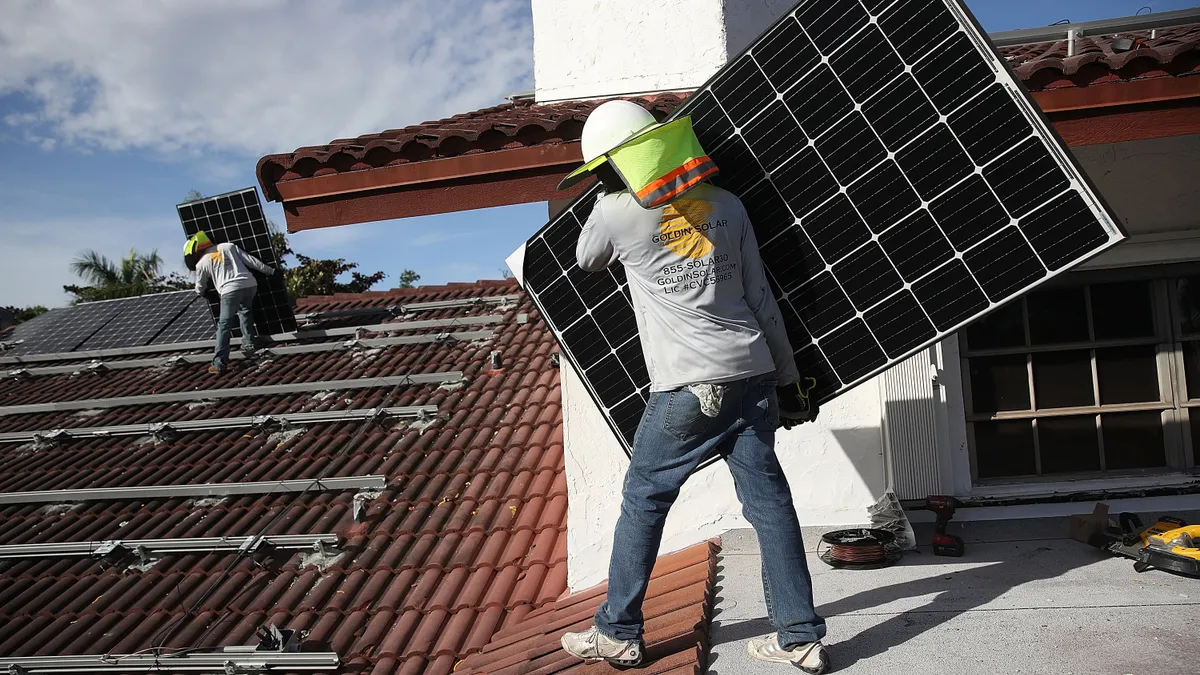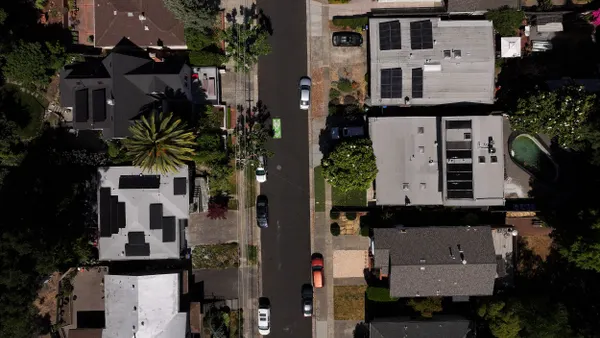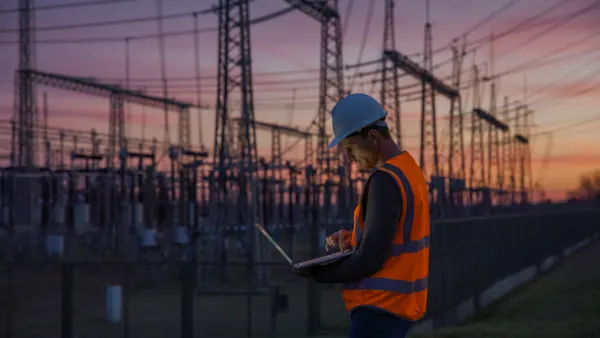Dive Brief:
- As Dominion Energy looks to expand its commitment to distributed solar projects by leasing small plots of land for solar installations in Virginia, a coalition of solar stakeholders has petitioned state regulators to make it easier for entities other than Dominion to connect distributed solar to the grid.
- The Virginia Distributed Solar Alliance, or VA-DSA, submitted a June 1 petition to the State Corporation Commission requesting an injunction to suspend Dominion’s interconnection parameters for net-metered distributed energy resources, alleging that they create “unreasonable” and unnecessary barriers to projects ranging from 250 kW to 1 MW.
- Dominion responded last week, saying the parameters are necessary for safe and reliable grid operations. The utility is “supportive” of companies and homeowners installing small-scale solar in the state, Dominion Media Relations Manager Aaron Ruby said in an interview.
Dive Insight:
Ruby said that Dominion’s interconnection parameters aren’t intended to hinder net-metered DERs, and the utility supports their expansion. “The current Virginia law caps the amount of distributed solar at about 6% of our total power generation capacity, and we may be only around a third of the way there in terms of adoption,” he said. “So there's plenty of room in Virginia for homeowners and small businesses to install their own rooftop systems.”
VA-DSA, whose members include the state’s Sierra Club chapter, Green Hill Solar, Convert Solar and Solar United Neighbors, argues in its petition that the interconnection parameters Dominion issued in December 2022 “usurped” the SCC’s authority to establish grid safety rules that are consistent with national standards.
“Dominion has prematurely and unilaterally imposed costs and delays that are both unprecedented and substantial on members of VA-DSA and its Customer Generators,” VA-DSA wrote, saying that the rules contradict the SCC’s duty to establish standards that aren’t unduly burdensome and expensive.
“Instead of saying, ‘We don't want anybody to install solar that we don't own or control,’ which is indefensible, because people from all political affiliations don't agree with that, what they're doing is using a spurious argument and basically usurping the authority of the regulators by imposing these special considerations in the name of safety,” said Solar United Neighbors’ Atlantic Southeast regional director, Aaron Sutch, in an interview.
Dominion is currently looking to increase its investment in small-scale solar projects throughout Virginia, and last week it hosted an informational open house in Halifax County “to raise awareness,” Ruby said.
“This is really the first of probably a series of community open houses that we'll be holding throughout Virginia with the same objective,” he said. The response to the open house has been “very positive” so far, he added, noting it received attention from landowners who were not previously aware the utility is interested in leasing small plots of land for solar.
Though Dominion would maintain control over any small-scale solar project it builds on leased land, Ruby said the utility also provides rooftop installation services for distributed solar through its affiliate company, Dominion Energy Solutions.
“So as a company, we are in the rooftop distributed solar business,” he said. “And we're actively marketing those opportunities to potential customers and encouraging that type of development. The best pathway to a clean energy economy is going to require an all of the above approach,” he said, which he believes includes residential and small commercial rooftop solar.
However, VA-DSA’s petition argues that Dominion’s interconnection rules have led to small-scale solar project delays – and, in the case of a 902-kW Convert Solar project in Newport News, to cost increases of $376,000 that led to the project being canceled.
Members of VA-DSA are largely either solar developers or financiers who are joining the coalition out of “desperation for relief” after projects have been put on hold, Sutch said.
He added that Dominion’s technical concerns “seem to disappear” when the utility is developing a project it owns.
In response to VA-DSA’s petition, Dominion requested that the SCC deny it in its entirety.
“The complained of actions taken by the Company are necessary to ensure the safe interconnection of Net Metering DERs onto the Company’s grid,” Dominion wrote.















